Our Projects
More than 65 years of project management experience and a track record of more than 10,000 successfully implemented programmes and projects worldwide demonstrate the IB’s know-how in project design, project implementation, monitoring and evaluation. This experience has enabled the IB to gain sound recognition as a reliable partner of bilateral and multilateral cooperation and donor agencies such as the European Union (EU), the German Federal Ministry for Economic Cooperation and Development (BMZ), the Swiss Agency for Development and Cooperation (SDC), the German Federal Ministry of Education and Research (BMBF), the Deutsche Gesellschaft für Internationale Zusammenarbeit (GIZ) or the World Bank.
The IB is currently present in social development, education and training markets in Central and Eastern Europe, the Middle East, Northern Africa and Asia (e.g. Belgium, Poland, Turkey, The People‘s Republic of China, and Georgia). With its subsidiaries abroad it offers service provision and consulting services in all sectors of its expertise. Below, please find a selection of our projects from Germany and abroad in the following sectors:
Social Development Projects
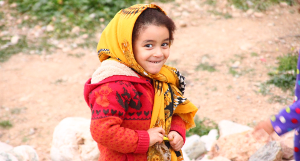
Social Rights for Vulnerable Groups (SoRi)
Germany, Macedonia, Kosovo, Serbia, Bosnia and Herzegovina, Albania
The aim of the regional project SoRi is to improve the conditions for securing equal social rights to vulnerable groups in selected municipalities in the Western Balkan. Primarily state institutions, which are the entities obliged to guarantee human rights and social services, but also...More information

Fit for the future - Inclusion of Roma into the Labour Market
Macedonia
The percentage of young people not in education, employment or training (NEETs) is almost double the EU average – accounting for around 30% of the youth population aged 15 – 29. Roma women, especially, are at high risk of becoming NEET. Therefore the project focused on...More information

Jmd2start - Support for young refugees in the youth migration service
Germany
Young refugees who come to Germany need personal and competent support: The model project "jmd2start - Support for young refugees in the youth migration service" strengthens their access to education, work and social participation. The Youth Migration Services...More information

Technical assistance on women's shelters for combatting domestic violence
Turkey
Domestic violence against women continues to present a particularly serious social problem in Turkey. The various statistical data on this topic show a reluctance to report domestic violence, which is in part a consequence of social and cultural norms that continue to influence women’s rights...More information

Voluntary Social Year IB e.V.
Germany
The IB Voluntary Social Year (FSJ) is an educational and orientation year for youth and young adults (ages 16-27). Young people can volunteer in the social and ecological area as well as in culture and sports – in welfare oriented institutions in all over Germany – for a certain period...More information

Youth Migration Services 2022
Germany
Youth Migration Services (YMS) is a social assistance programme designed to accompany migrants with an individual integration scheme including integration courses on their way to education, vocational training placements and employment. Immigrants need a socio-pedagogic...More information

Early Childhood Development, Radeberg
Germany
Early childhood development includes education measures for children between 0 and 6 years of age (level 0 ISCED classification). Early childhood education of IB institutions includes different institutional measures: amongst others cradles (children between 0 and 3 years of age)...More information

Vocational Preparation Measures for Rehabilitees
Germany
Vocational Preparation Training Measure for Rehabilitees (BvB-Reha) is an educational preparation programme for technical vocational education and training (TVET) within the dual system. The target group of the programme is young adolescents who have attended schools for...More information

Early Childhood Development Kita Storchennest, Herrenhut
Germany
Early childhood development includes education measures for children between 0 and 6 years of age (level 0 ISCED classification). Early childhood education of IB institutions includes different institutional measures: amongst others cradles (children between 0 and 3 years of age)...More information

Disability-specific Vocational Training - Integrative Model
Germany
Disability-specific Vocational Training – Integrative Model is an active labour market measure and consists of a socio-educational accompanied vocational education program within the German dual system. The target group of the measure is young people with disabilities...More information

Residential Homes and affiliated Day Activity Centres
Germany
To be at home is part of life. Article 19 of the UN Convention on the Rights of Persons with Disabilities recognizes the right of persons with disabilities to live and participate in the community. Article 22 recognizes that no person with disabilities, regardless of place of residence or...More information

Family-Centered Support and Open Services
Germany
Article 19 of the UN Convention on the Rights of Persons with Disabilities recognizes the equal right of all persons with disabilities to live in the community, with choices equal to others, and shall take effective and appropriate measures to facilitate full enjoyment by persons with...More information

Supported Employment Oberursel
Germany
Participation in the labour market is an important step for people with disability towards economic and social inclusion. Unemployment often leads to isolation which is particularly threatening people with mental, physical and emotional disabilities. The unemployment rate of...More information

Grant Services for the Franco-German Youth Office
Germany/France
The Franco-German Youth Office (FGYO) is an autonomous international organization - founded and financed by the French and German Government and led by a board consisting of the French Minister of Sports, Youth, Further Education and Active Solidarity and the German Minister for...More information
Education and Labour Market Services

Enhancement of the Egyptian Dual System (EEDS) - Upskilling vocational training personnel in the dual system
Egypt
High unemployment, especially youth unemployment, is one of Egypt’s most pressing problems. The reasons are rapid population growth, macroeconomic problems, inadequate job placement services and a lack of job-market relevance in education and training. While the dual training...More information

Three Million Trees - Refugee Employment Initiative in Turkey
Turkey
More than 4.8 million Syrians have fled from their home countries due to the war - most of them to the neighboring countries, Turkey, Lebanon and Jordan.
Syrians have little or no money when they come to Turkey, so they need to find...More information

Technical Assistance to the Support Programme for the Development and Implementation of National Youth and Youth Employability Policies
Algeria
Over 60% of Algeria’s population is under 35. Social and professional inclusion of young people is therefore of great importance. Major issues are also seen within...More information

Technical Assistance for Promoting Registered Employment Through Better Guidance and Inspection (PRE II)
Turkey
Unregistered employment is one of the main challenges in Turkish labour market. The purposes of this contract are: to increase the guidance and inspection capacity of Social Security Institution (SSI) both at central and local level; to increase the policy making capacity of...More information

Assistance during Training
Germany
Assistance during Training (abH) is an active labour market measure launched by the Federal Employment Agency aiming to support young people with special learning needs with successful finalisation of the TVET programmes and entering the labour market...More information
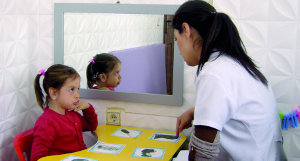
Improvement of Preschool Education (IMPRES) in Serbia
Serbia
Serbia faces problems in providing good quality education and is failing to equip young people with the skills and knowledge they need to be successful in the labour market. International research and analysis as well as national experience show that investing in quality preschool...More information

Supported Employment Oberursel
Germany
Participation in the labour market is an important step for people with disability towards economic and social inclusion. Unemployment often leads to isolation which is particularly threatening people with mental, physical and emotional disabilities. The unemployment rate of...More information

Transition into the Labour Market
Germany
The present labour market is subject to constant changes due to technological and economic developments. In this frame, labour market needs on the one side, and professional skills attained through education on the other, need to be continuously, linked, revised and adapted...More information
International Cooperation
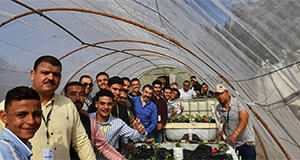
Skills4Trends - Promoting Skills Development for New Labour Market Trends in Egypt
Egypt
The project "Skills4Trends - Promoting Skills Development for New Labour Market Trends in Egypt " is a PartnerAfrica-Project within the framework of the Special Initiative “Decent Work for a Just Transition” of the Federal Ministry for Economic Development and Cooperation (BMZ) between Internationaler Bund e.V. (IB) / Industrie- und Handelskammer Projektgesellschaft Ostbrandenburg (IHK-PG) and the Alexandria Business Association (ABA) / Sadat City Investors Association (SCIA).
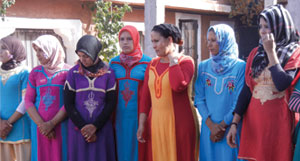
Promoting Youth Employment in Rural Areas (PEJ II)
Morocco
Promoting employment is a top priority and an issue of utmost importance for the Moroccan authorities. Even with the economic growth that Morocco is experiencing, not enough jobs are being created to integrate the young population into the labour market...More information

Enhancement of the Egyptian Dual System (EEDS) - Upskilling vocational training personnel in the dual system
Egypt
High unemployment, especially youth unemployment, is one of Egypt’s most pressing problems. The reasons are rapid population growth, macroeconomic problems, inadequate job placement services and a lack of job-market relevance in education and training. While the dual training...More information
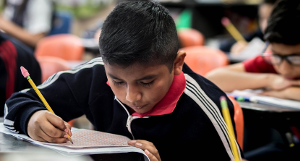
Capacity Development in Basic Education
Kosovo
Since Kosovo’s declaration of independence in 2008, the country’s education system has been subject to extensive reforms. However, their implementation has been delayed for various reasons, some of which are mutually reinforcing. The education sector is underfunded and...More information
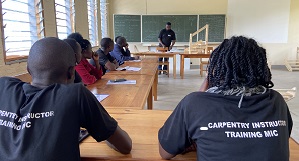
proWOOD – Promoting Competence in Wood Technology
Rwanda
The project "proWOOD – Promoting Competence in Wood Technology" is a PartnerAfrica-Project within the framework of the Special Initiative on Training and Job Creation of the Federal Ministry for Economic Development and Cooperation (BMZ) between Internationaler Bund e.V. (IB) and TVET institutions and business associations of the wood sector in Rwanda....More information

ALTAZIR - Improved Employability of Moroccan Youths
Morocco
The project primarily aims to increase the employability of Moroccan youth through a more practice-oriented design of vocational training by piloting partial qualifications in two professions closely related to the construction sector and strengthening the participation of the Moroccan private sector with regard to vocational training.... More information
“Good Pedagogy, Good Education!” - Building bridges through early childhood education in Kosovo
Kosovo
There is an increasing shortage of qualified experts and young talent, not only in Germany but worldwide. In many of Germany’s partner countries for international cooperation, there is a mismatch between the demand for experts in some sectors and a surplus in others. The 2030 Agenda for Sustainable Development stresses that regular vocational training and labour migration can promote sustainable development. It enhances qualifications, strengthens the workforce, and encourages cultural diversity and investment. By transferring skills, knowledge and financial resources, it contributes to improving life in the countries of origin.

EU4SI Albania - Improving Social Services, Education and Employment for a more inclusive Albania
Albania
The Republic of Albania became a potential candidate country for the EU Accession. Even if Albania is an economy in transition, has been showing significant economic growth for the last decade and slowly decreasing excepted by the considerable losses due the earthquake in 2019 and COVID-19 pandemic – still Albania is on a high level of poverty and social exclusion and remains one of the poorest countries in Europe. 34,5% of the Albanians are living below the poverty line.
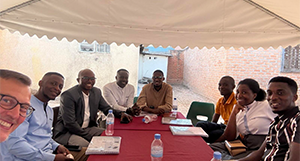
proWOOD+ - Strengthening the Trade Union for Wood Workers in Rwanda
Ruanda
The project "proWOOD+ - Strengthening the Trade Union for Wood Workers " is a PartnerAfrica-Project within the framework of the Special Initiative on Training and Job Creation of the Federal Ministry for Economic Development and Cooperation (BMZ) between Internationaler Bund e.V. (IB) and the trade union STECOMA of the wood sector in Rwanda… More Information.




